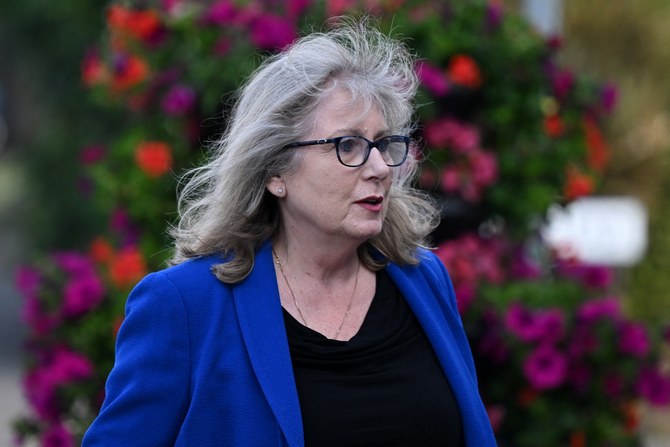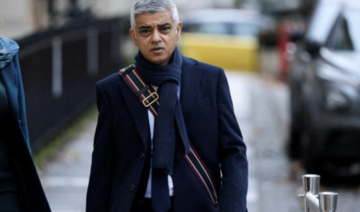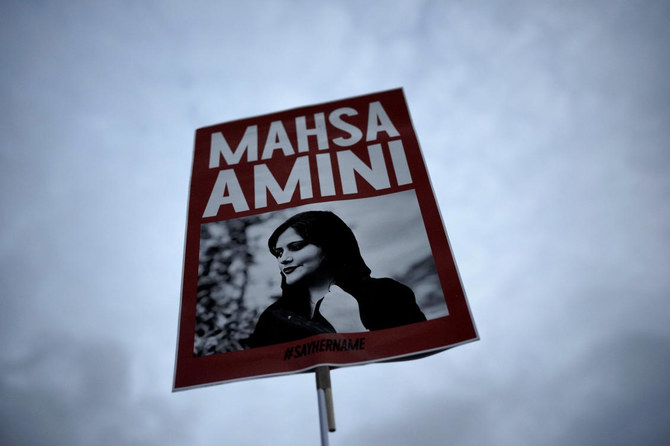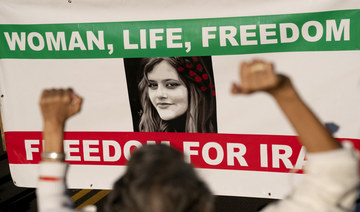LOS ANGELES: Drama “Nomadland” and satire “Borat Subsequent Moviefilm” won movie honors at the Golden Globes on Sunday in a mostly virtual bicoastal ceremony that was marked by impassioned calls for more diversity and the dominance of Netflix.
“Nomadland,” a moving drama about van dwellers in recession-hit America from Searchlight Pictures, also took the best director prize for Chinese-born Chloe Zhao. It made Zhao only the second woman to win at the Globes in that category, and the first woman director of Asian descent to win.
“For everyone who has gone through this difficult and beautiful journey at some point in their lives, this is for you,” said Zhao.
“We don’t say goodbye, we say see you down the road,” she said, quoting a line from the movie.
The two wins for “Nomadland” increased the profile of the film ahead of nominations in March for the Oscars.
Sacha Baron Cohen, the creator of “Borat Subsequent Moviefilm” from Amazon Studios was named best comedy movie actor, while singer Andra Day was a surprise winner for her lead role in “The United States vs. Billie Holiday.”
“Donald Trump is contesting the result!” Baron Cohen joked about the win for the “Borat” sequel, which was a satire on the America of the former US president.
Netflix’s period drama “Mank,” about “Citizen Kane” screenwriter Herman Mankiewicz, had gone into Sunday’s show with a leading six nods but ended the night empty-handed.
Nevertheless, the streaming service was the biggest winner on Sunday, with four wins in the movie field and six for television, including best TV drama series “The Crown” and limited series chess saga “The Queen’s Gambit.”
The usual chummy gathering of A-listers at a gala dinner in Beverly Hills, California, was replaced by webcams in the homes of celebrities that were either dressed up or, like “Ted Lasso” star Jason Sudeikis, in casual garb.
Hosted by Tina Fey in New York and Amy Poehler in Beverly Hills, the small physical audiences were made up of masked frontline workers.
Peter Morgan, creator of “The Crown” said he missed being together. “I’m just sorry I am sitting here in my tragic little office and not surrounded by the people who make this show such a pleasure,” Morgan said, appearing by video.
However, Jodie Foster, a best supporting actress winner for the Guantanamo prison legal drama “The Mauritanian,” told reporters backstage that she felt it was one of the best Golden Globe shows ever. “It didn’t feel like it was filled with so much artifice,” said Foster.
Emotional high points included a posthumous best actor award for Chadwick Boseman, who died at age 43 last August from an undisclosed battle with cancer. “He would say something beautiful,” said his widow Simone Ledward Boseman, as she fought back tears. “I don’t have his words.”
British actors Daniel Kaluuya and John Boyega were among other Black winners chosen by the Hollywood Foreign Press Association (HFPA), which has been lambasted in recent days for having no Black people among its 87 members.
“Soul,” the first Pixar movie to have a Black character in the lead, was named best animated movie and won best score.
The HFPA was the target of jokes and comments throughout the night. “We all know awards shows are stupid,” said Fey. “Even in stupid things, inclusivity is important and there are no Black members of the Hollywood Foreign Press Association (HFPA).”
Members of the HFPA appeared briefly on Sunday’s show and pledged to do better.
Jane Fonda, 83, used her lifetime achievement acceptance speech to make the case for elevating all voices in Hollywood, saying that stories “really can change people.”










 Based in the company’s Riyadh office, Al-Shathri will be responsible for accelerating business growth in Saudi Arabia and building the operational business and community.
Based in the company’s Riyadh office, Al-Shathri will be responsible for accelerating business growth in Saudi Arabia and building the operational business and community.














